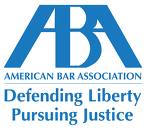 The ABA Standing Committee on Ethics and Professional Responsibility has released a formal opinion addressing the responsibilities of managerial and supervisory prosecutors. In Formal Opinion 467 (Sept. 8, 2014), the committee described those responsibilities, and suggested ways in which a managerial and supervisory prosecutor can ensure that the prosecutor complies with the Model Rules. In describing the need to address prosecutor responsibilities under Model Rules 5.1 and 5.3, the opinion discussed two high-profile cases involving prosecutorial misconduct in the New Orleans District Attorney’s Office: Connick v. Thompson, 131 S. Ct. 1350 (2011), and Smith v. Cain, 132 S. Ct. 627 (2012).
The ABA Standing Committee on Ethics and Professional Responsibility has released a formal opinion addressing the responsibilities of managerial and supervisory prosecutors. In Formal Opinion 467 (Sept. 8, 2014), the committee described those responsibilities, and suggested ways in which a managerial and supervisory prosecutor can ensure that the prosecutor complies with the Model Rules. In describing the need to address prosecutor responsibilities under Model Rules 5.1 and 5.3, the opinion discussed two high-profile cases involving prosecutorial misconduct in the New Orleans District Attorney’s Office: Connick v. Thompson, 131 S. Ct. 1350 (2011), and Smith v. Cain, 132 S. Ct. 627 (2012).
Model Rules 5.1 and 5.3 require a lawyer with managerial or supervisory authority to make reasonable efforts to ensure that lawyers and nonlawyers in the prosecutor’s office conform their conduct to the Rules of Professional Conduct. Model Rule 3.8 details the special responsibilities of a prosecutor, and Comment 6 to Rule 3.8 specifically states that a prosecutor also has responsibilities under Model Rules 5.1 and 5.3.
A prosecutor with managerial responsibility includes the top prosecutor and all others with executive functions in the office, including, for example, the District Attorney, the U.S. Attorney, executive staff, bureau or unit heads, or others in similar positions. Under Rules 5.1 and 5.3, a managerial prosecutor must make “reasonable efforts” to ensure that subordinate lawyers and nonlawyers conform their conduct to the Model Rules of Professional Conduct.
As to the “reasonable efforts” a managerial prosecutor should undertake to comply with Model Rules 5.1 and 5.3, a supervisory prosecutor should train incoming lawyers, regardless of previous experience, on matters such as: disclosures of exculpatory evidence, public statements, what must be revealed to a tribunal, how to deal with represented and unrepresented persons, how to conduct a closing argument, and what conduct by other prosecutors must be reported. Nonlawyers should also receive training regarding the ethical obligations of prosecutors under Model Rule 3.8 and regarding the preservation of evidence. A supervisor should take a hands-on approach in keeping informed of the status of cases being handled by subordinate lawyers, and participate in the major decisions of subordinates, establish a system for individual oversight of line prosecutors, pair newly-trained prosecutors with more experienced ones, and designate a specific lawyer to oversee the review of files for exculpatory Brady material.
Louisiana Rules of Professional Conduct 5.1 and 5.3 are nearly identical to the corresponding provisions of the ABA Model Rules. As a result, this opinion should provide relevant guidance to prosecutors in Louisiana.
